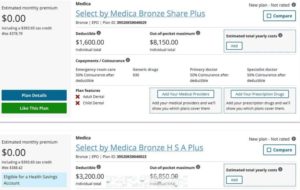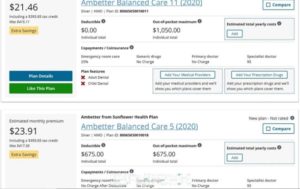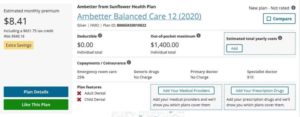Beverly Gossage is a consumer-based health care expert and is a senior fellow with Independent Women’s Voice. She is also past president of the Kansas Association of Health Underwriters. In addition to training and writing health savings account (HSA) policies for individuals and the self-employed, she helped pioneer them for businesses in Kansas and Missouri. She has testified on health policy bills in both houses of the Kansas and Missouri Legislatures.
In response to the Kansas Medicaid Agreement announced last week, Gossage answers some frequently asked questions related to the expansion and what it could mean for consumers.
Can low-income people get insurance?
Currently, low-income people who are at the poverty level (work 30 hours a week at minimum wage) will qualify for an insurance policy through an employer, including McDonald’s, Walmart or any employer who offers group plans.
And they definitely get a policy through healthcare.gov at very low rates and their office visits and generic drugs can be zero and their total out of pocket regardless of their medical claims can be very low.
Below are a few screenshots of plans for at the poverty level, age 30 male in Johnson County.


There are 39 plans to pick from and he would receive a tax credit for $394 per month. Bronze plans are zero premium and some are HSA qualified, so friends or family or church could put funds into it to be used in case he needed to use it for medical expenses. But most of these folks choose the Silver plans because the premiums are low and the out-of-pocket is much lower.
Below are the same quotes only for an age 50 female:


But if we expand Medicaid, those people can keep their plan at healthcare.gov, right?
If we expand Medicaid, the people in the examples above would lose ALL the subsidy, so the premium would go up to full price and their benefits would be back to a high out-of-pocket OR they could choose Medicaid. They are left with a false choice.
Who can currently receive Medicaid without the expansion?
Currently the disabled and/or low-income families, children and elderly can receive Medicaid. Some people with disabilities are on a waiting list to get in.
So who is this population that the Democrats and the Hospital Association say Medicaid expansion will help?
Technically, able-bodied childless adults below 138% of the Federal Poverty Level, but most of those people already have private coverage. Others could have access to it through an employer plan if they work at least 30 hours weekly, through a parent’s plan if under 26, or through the Obamacare exchanges if they meet the minimum work requirement earning at least $12,500 annually (about 30 hours per week at minimum wage). 23,000 Kansans currently receive these heavily subsidized plans but would be forced off them into Medicaid if expanded. So only those able-bodied adults who don’t meet the work requirement are arguably the true beneficiaries.
Does this population have access to medical care?
Yes, they have access to medical care.
54% of eligible adults in Kansas are estimated to already have private coverage through their employer or through the individual marketplace. About 23,000 more are estimated to currently get premium support for private coverage on the ObamaCare exchange, and others would be eligible for premium support if they meet the minimum work requirements mentioned above.
Others have access to medical care through community clinics at free or very low-cost prices. For example, here is a site where you can enter your city and find medical help. Doctors or pharmaceutical companies often give free or low-cost medications to this population. ERs must take them if they encounter an emergency. The hospital receives reimbursement through the government’s disproportionate share funds if they can’t collect from the patient.
If not Medicaid expansion, then should we do more to help these folks to get medical care?
We could give a state tax deduction for doctors who offer pro bono services, particularly in areas where there are few doctors. Insurers could expand telemedicine. Some already offer it. Encourage these Kansans to get a job, which is plentiful in Kansas. Publicize on the KS website where to find jobs and assistance with resume preparation. List free or low-cost medical services on our website and at doctors’ offices and hospitals.

